Cholera rampant among displaced and refugees in Darfur and eastern Chad
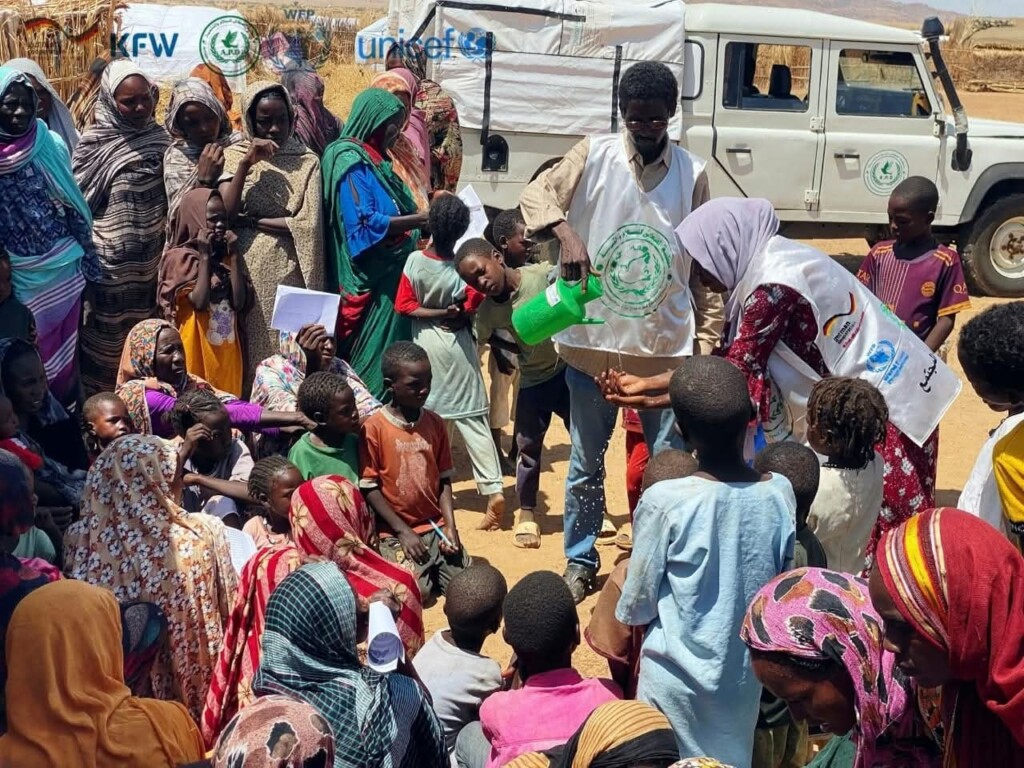
Cholera awareness campaign in Tawila, North Darfur, in July (Photo: Supplied)
Multiple sources are reporting ‘hundreds’ of deaths among ‘thousands’ of cases of cholera across Darfur, as well as among Sudanese refugees in eastern Chad, often amid a near-total absence of emergency healthcare support. This is exacerbated by continued mass displacement as civilians flee war zones.
The World Health Organisation (WHO) warn of a looming health catastrophe without humanitarian corridors and ceasefires. Radio Dabanga reported last week Sudan’s childhood immunisation rate has fallen to 48 per cent, the lowest in 40 years, according to the WHO and the UN Children’s Emergency Fund (UNICEF), leaving 880,000 infants at risk of diseases like tetanus and diphtheria.
South Darfur
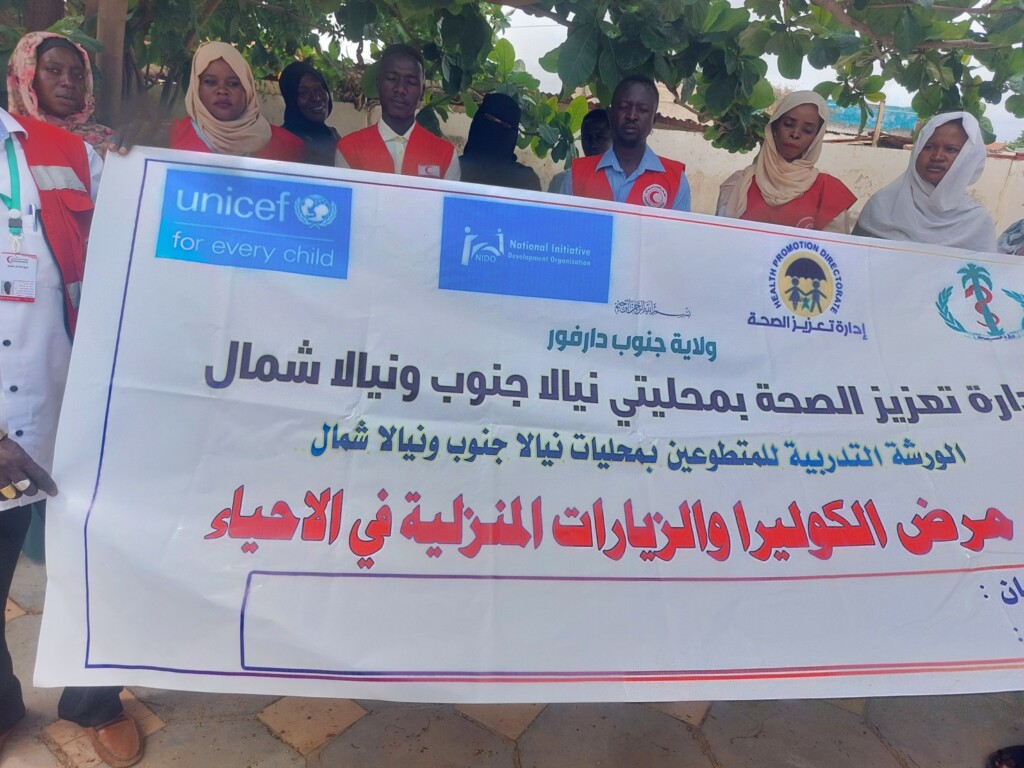
The General Department of Health Emergencies and Epidemic Control at the Ministry of Health in South Darfur announced the registration of 52 new cholera cases, including two deaths, on Saturday. This brings the cumulative number of cases to 690, while the death toll has reached 49.
The Ministry indicated that 31 cases were recorded in Nyala North, from the neighbourhoods of: Khartoum Balil, Riyadh Arab, Ander, El Darwa, Domaya, and Drij Center 1 and 2 Camp. 12 cases were also recorded from the neighbourhoods of El Jir North, El Jir South, El Wahda South, and El Sareif in Nyala South Locality, in addition to 8 cases in Kalma Camp for the displaced, El Rashid neighbourhood, and El Salam camp.
One case of infection and one death were also recorded in the Umm Kasara area of El Salam locality, and a child died of cholera in El Salam camp.
Health sources told Radio Dabanga that a three-year-old girl died yesterday from cholera in El Salam camp for internally displaced people in South Darfur. This brings the number of confirmed deaths to two, with six confirmed cases recorded at the time of writing.
According to medical sources inside the camp, the child’s health rapidly deteriorated due to her weakened immune system and poor shelter conditions, exacerbating the risk of infection and leading to her death.
Camp residents are suffering from extremely complex health conditions, amid a shortage of sterilisation equipment and a near-total absence of emergency healthcare support. Residents also fear the spread of the disease, especially given the heavy rains currently sweeping the region, which are contributing to environmental degradation and increased pollution rates.
In this context, camp residents have appealed to health authorities and humanitarian organisations to urgently intervene and provide protective and sterilisation supplies, particularly tarpaulins and hygiene materials, to limit the spread of cholera and protect children and women inside the camp.
People also called for intensified health awareness campaigns and the provision of first aid stations, stressing that the current situation portends a humanitarian disaster unless the necessary measures are taken.
North Darfur
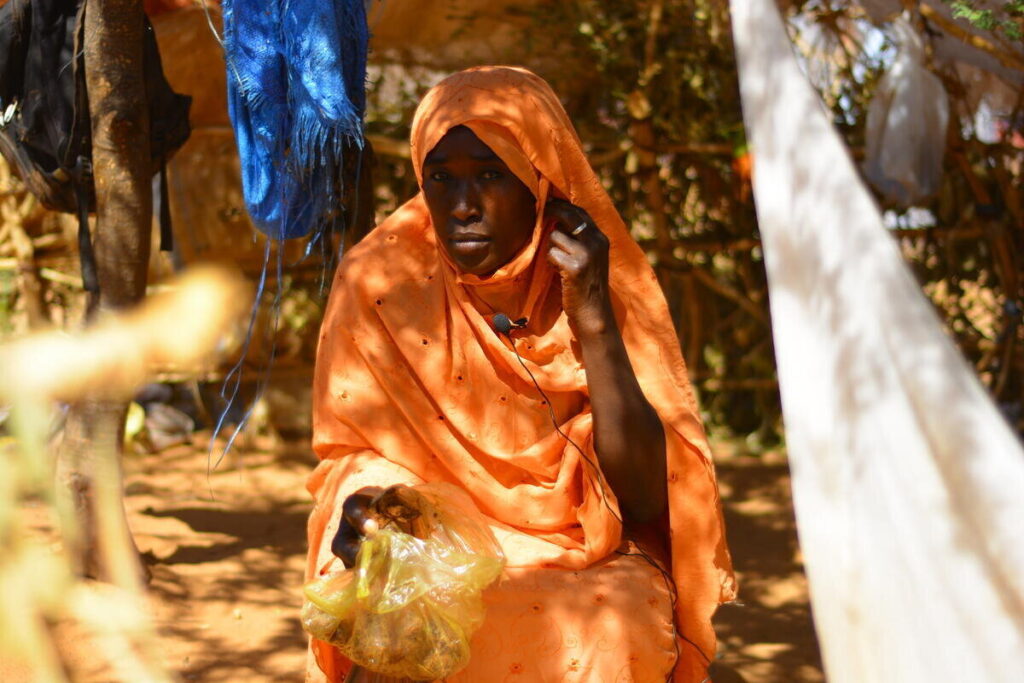
The civilian authority in the areas controlled by the Sudan Liberation Movement led by Abdelwahid El Nur announced a rise in the number of cholera cases in the Tawila camps in North Darfur, exceeding 1,543 cases, including 154 deaths, since the cases appeared on July 21.
Mujib Alrahman Alzubeir, the head of the authority, said in a statement seen by Radio Dabanga that the Golo camps in Jebel Marra had witnessed 23 cases of cholera, of which 7 people had died.
For its part, the Central Darfur Emergency Room Coordination Council reported that 100 cholera cases were being recorded daily in the Tawila and Jebel Marra camps. It explained that the number of cases in isolation rooms had reached more than 200.
Mujibur Rahman al-Zubair expects new cases to emerge within areas controlled by the movement due to ongoing displacement, weak infrastructure within displacement camps, and a shortage of medicines and health organisations.
Mujibur Rahman once again made an urgent humanitarian appeal to the international community to shoulder its legal and moral responsibility to protect defenceless civilians.
He declared the areas under the movement’s control “humanitarian disaster zones,” calling on the international community and the United Nations to intervene immediately to save the lives of more than 7 million people living in dire humanitarian conditions.
Areas under the movement’s control have witnessed massive influxes of displaced people from various cities and regions across Sudan.
The movement issued a number of appeals, addressing the international community, represented by the United Nations and its agencies, and regional and international organisations. In the statement, the PA president indicated that the relief and humanitarian aid provided does not exceed 35per cent of the actual needs of the displaced.
The influx of displaced people from El Fasher to Tawila has increased since April, following the massive attack launched by the Rapid Support Forces on the city and their capture of the Zamzam camp.
Awareness campaign
A large-scale health awareness campaign to combat the cholera epidemic was launched yesterday, Saturday, in the Tawila locality in North Darfur state. The campaign is being organised by the Atash Organisation in coordination with the local health authorities, with support from UNICEF and funding from the German Cooperation through the German Development Bank.
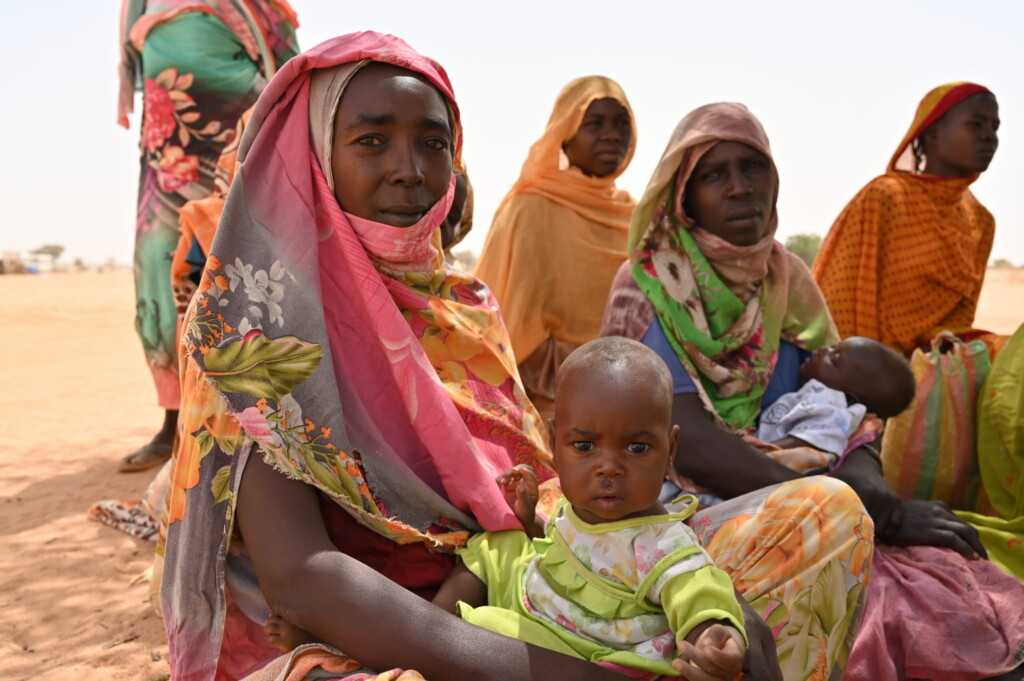
The campaign targeted eight selected areas in the Tawila region, including the areas most affected by the cholera epidemic among displaced people and host communities: Tawila El Um, El Omda Tabara, Kator, Dobo, Daba Naira, and the camps.
The director of the Atash Organisation’s office in North Darfur, Noureddine El Doma Bush Hajam, explained in a statement that health awareness campaigns began with the training of a large number of health promoters from the local community, educating them about the importance of environmental sanitation, the use of toilets, personal hygiene, and handwashing during critical times. They were also equipped with skills to raise health awareness and change behaviour through health awareness sessions, home visits, educational lectures, and the distribution of brochures and messages on cholera.
The campaign aims to reach 36,000 beneficiaries in selected areas and aims to raise awareness about the importance of disease prevention and combating the cholera epidemic. The campaign will continue to achieve its goals of promoting public health and improving the living conditions of the region’s population.
Eastern Chad
The Chadian Ministry of Health has revealed a cholera outbreak in the new Dougi camp for Sudanese refugees in the Chokoyane health district, Ouara department, Ouaddaï province in eastern Chad.
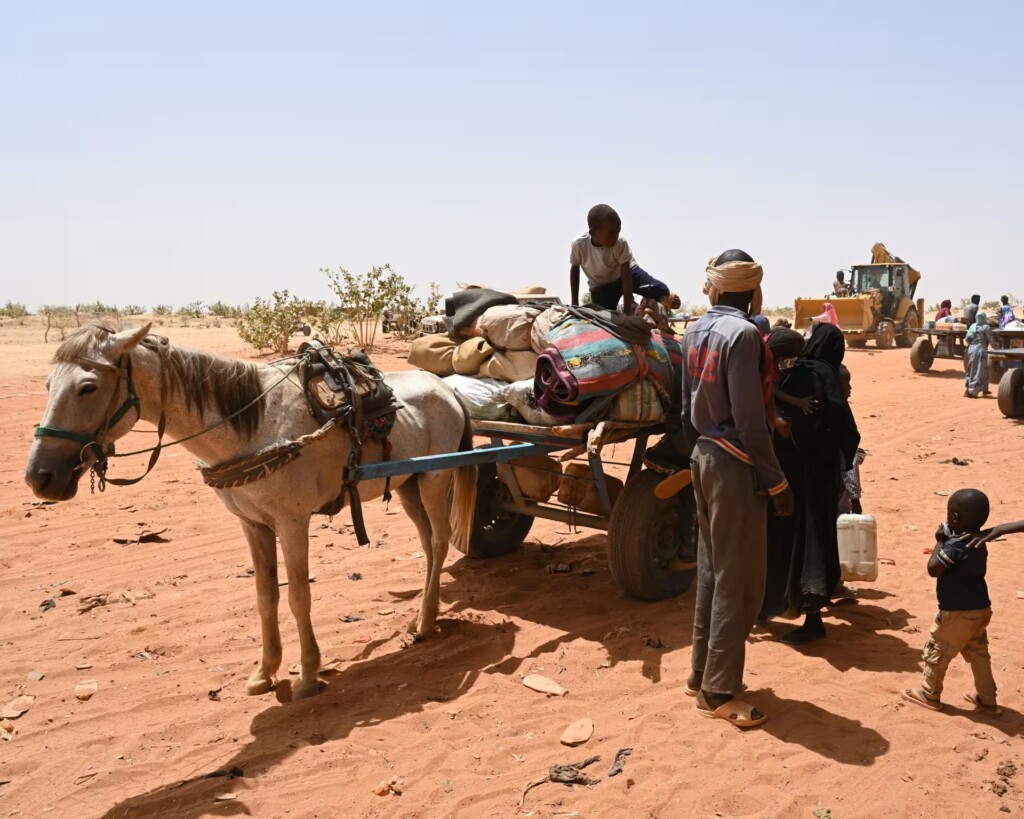
The ministry noted in its report that 42 suspected cases, including four deaths, had been recorded. Samples were taken to the national laboratory in the capital, N’Djamena, and tests confirmed the presence of cholera in two samples.
Since the outbreak of war in Sudan in April 2023, more than 844,000 Sudanese refugees have crossed into Chad, which was already hosting nearly 409,000 Sudanese refugees fleeing previous waves of conflict in Darfur since 2003.
The Ministry called on all official and popular bodies and refugees to work together to contain and eradicate the disease.
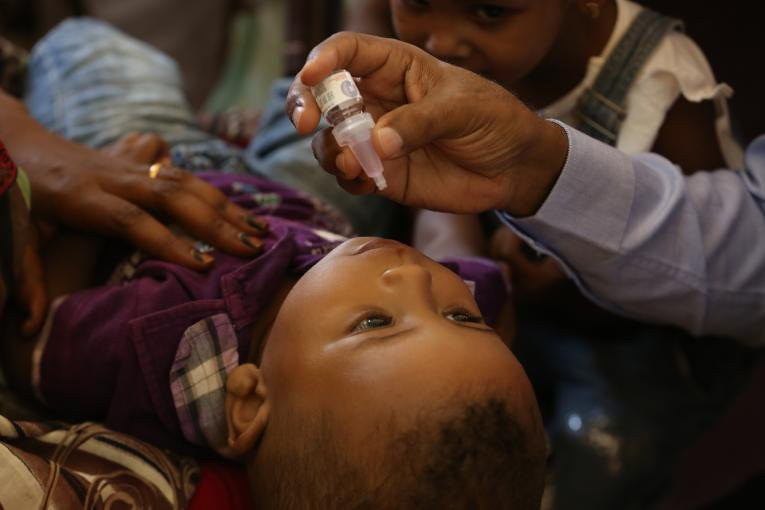
UNICEF says that to date, 42 suspected cases have been recorded, including 4 deaths. On 24 July Chad’s Ministry of public Health and prevention appointed an Incident Manager to coordinate the response to cholera outbreaks. Earlier, on 21 July 2025, the Chadian government urged stakeholders to redouble their vigilance to strengthen prevention and preparedness measures against cholera.
“UNICEF and its partners, the Provincial Health Authorities, the Provincial Water and Energy Authorities, the Chadian Red Cross, and the NGO Sahkal, are focusing their efforts on Risk Communication and Community Engagement (RCCE) and Infection Prevention and Control (IPC),” the UN agency says.
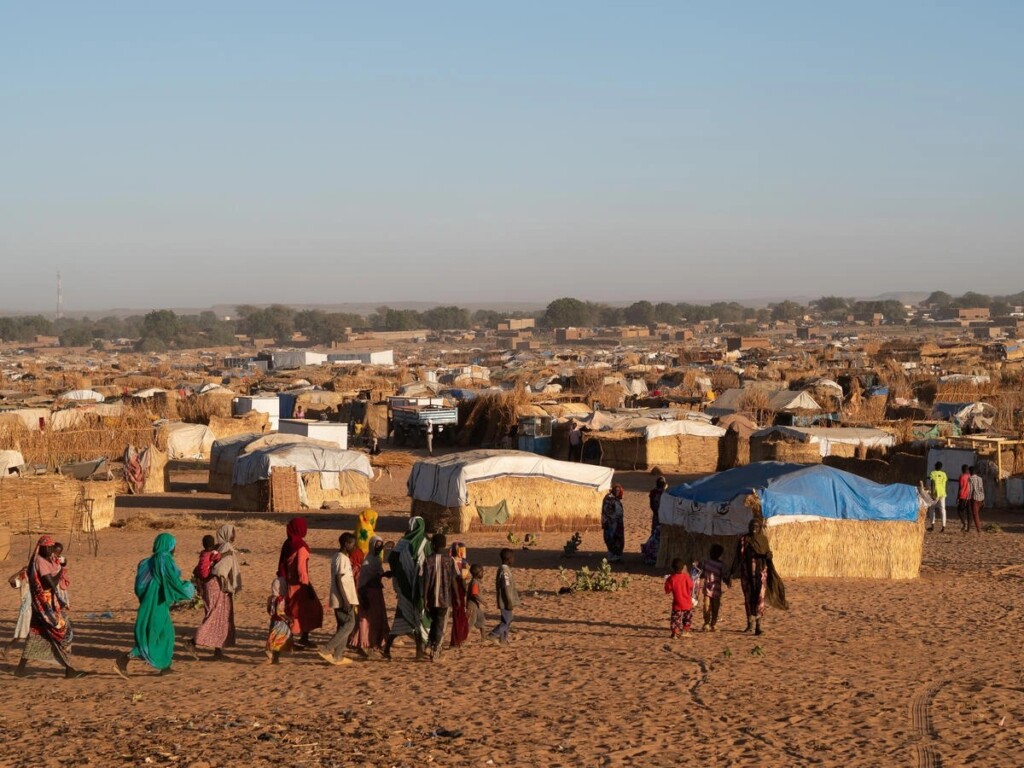
UNICEF reports that the refugee influx into Chad has continued at the main entry points to Sudan’s border provinces since the start of the conflict in Sudan on 15 April 2023. Between the triggering of this conflict and July 20, 2025, the Chadian government, the Office of the United Nations High Commissioner for Refugees (UNHCR) and the International Organisation for Migration (IOM) have registered 873,622 Chadian refugees and 306,865 returnees. 61per cent of refugees and 67per cent of returnees are children under the age of 18. This includes 93,761 refugees who have arrived in Chad since mid-April 2025, following the attacks on the internally displaced people camps of Zamzam and Abou Shouk in Sudan. Most of these refugees are arriving in the provinces of Wadi Fira and Ennedi Est.









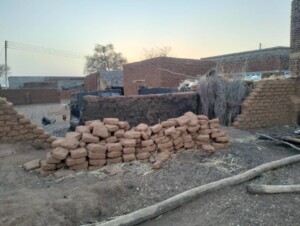

 and then
and then